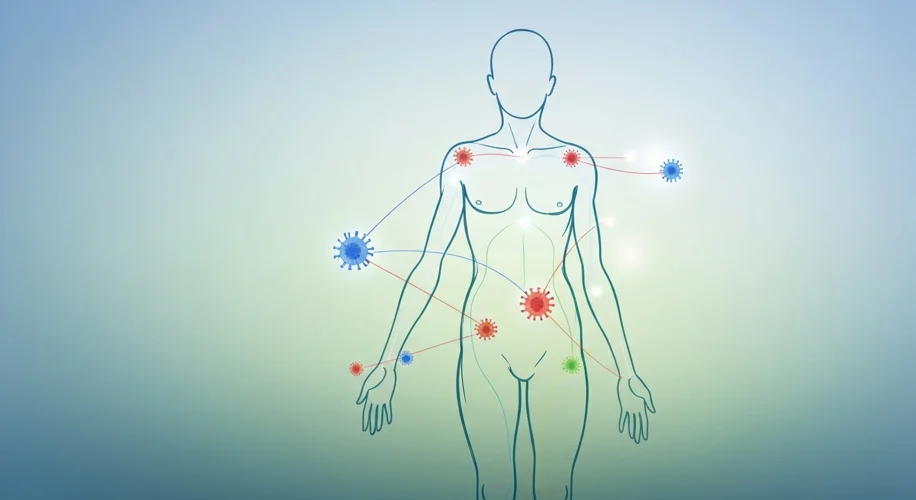It’s been a challenging few years, with many of us navigating the complexities of viral infections like COVID-19 and the flu. We’re all familiar with the immediate effects of these illnesses, but what if there were deeper, longer-term implications we’re only just beginning to understand?
Recent research, highlighted by HuffPost, is shedding light on a potentially alarming connection between past viral infections, including COVID and the flu, and the risk of breast cancer recurrence. This isn’t about fear-mongering; it’s about understanding the science and how our bodies respond to these common threats.
The Science Behind the Link
As a scientist, I’m always fascinated by the intricate ways our bodies work, and sometimes, unexpected connections emerge. This new research delves into the biological mechanisms that might explain how viral infections could influence cancer progression. One theory involves how the immune system, once activated by a virus, might react differently when it encounters cancer cells. Essentially, the body’s defense system, while fighting off the virus, could inadvertently alter its response to existing or returning cancer cells.
Think of it like this: your immune system is a highly trained army. When a new invader (like a virus) arrives, the army mobilizes, deploying various strategies. This intense mobilization might, in some instances, leave certain areas vulnerable or change the way it perceives existing ‘threats’ within the body, such as cancer cells.
Why This Matters for Public Health
We know that viral infections are widespread, and unfortunately, so is cancer. Understanding any potential link between the two is crucial for public health strategies. This research prompts important questions: Should we consider a patient’s recent viral infection history when assessing cancer risk or recurrence? Are there ways to bolster our immune systems more effectively after an infection to mitigate any potential negative effects on cancer survivors?
This also brings to light the issue of health disparities. For communities that already face significant barriers to healthcare – whether due to economic factors, systemic inequities, or chronic stress – these new findings could be particularly concerning. Underserved communities often experience higher rates of chronic stress and may have less access to consistent medical care, which could, in turn, exacerbate the impact of viral infections and their potential downstream health consequences.
Moving Forward with Knowledge
It’s important to remember that this is an area of ongoing research. Science is a process of constant discovery, and these findings are part of a larger puzzle. The goal isn’t to create panic, but to foster informed conversations and encourage further investigation.
For those who have experienced cancer, especially breast cancer, and have recently had COVID-19 or the flu, it’s always a good idea to discuss any concerns with your healthcare provider. They are the best resource for personalized advice based on your specific health history.
This research is a powerful reminder of the interconnectedness of our health. By staying informed and supporting scientific inquiry, we can work towards better understanding and improving health outcomes for everyone.

